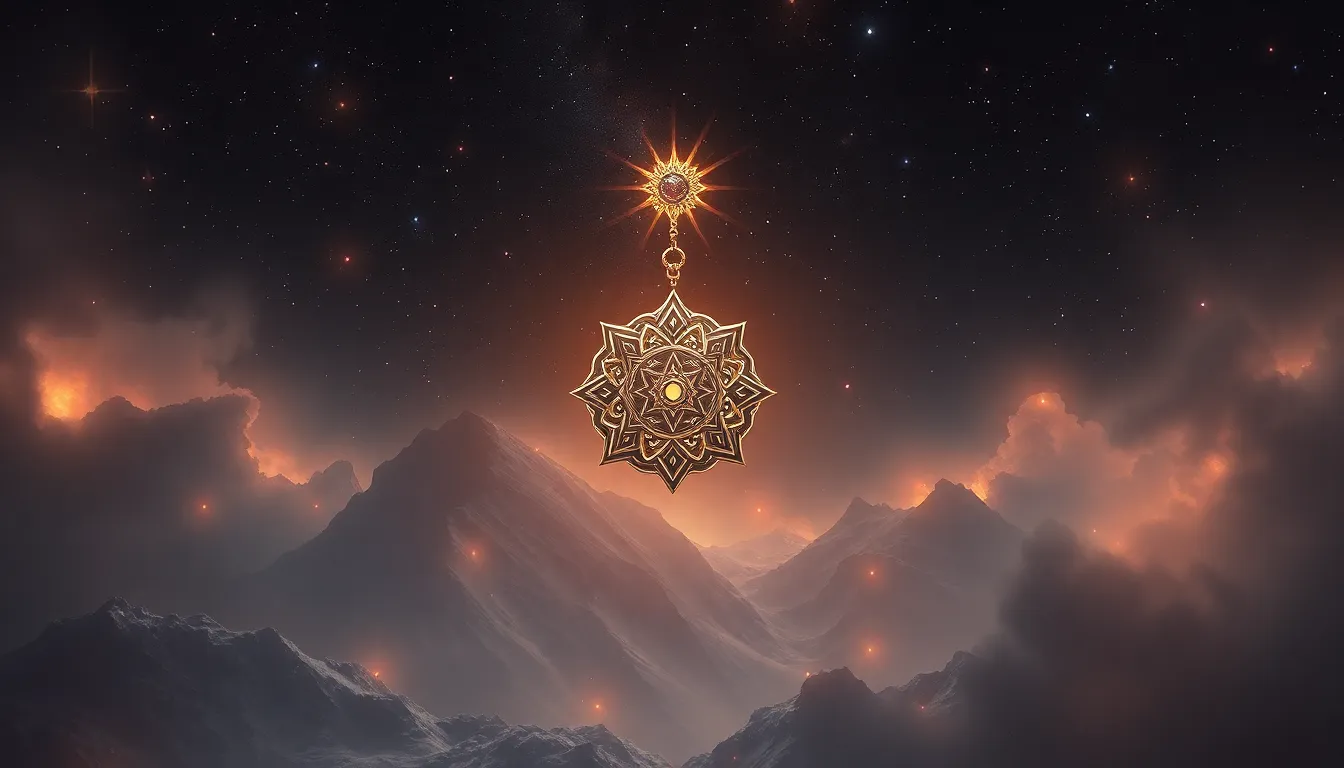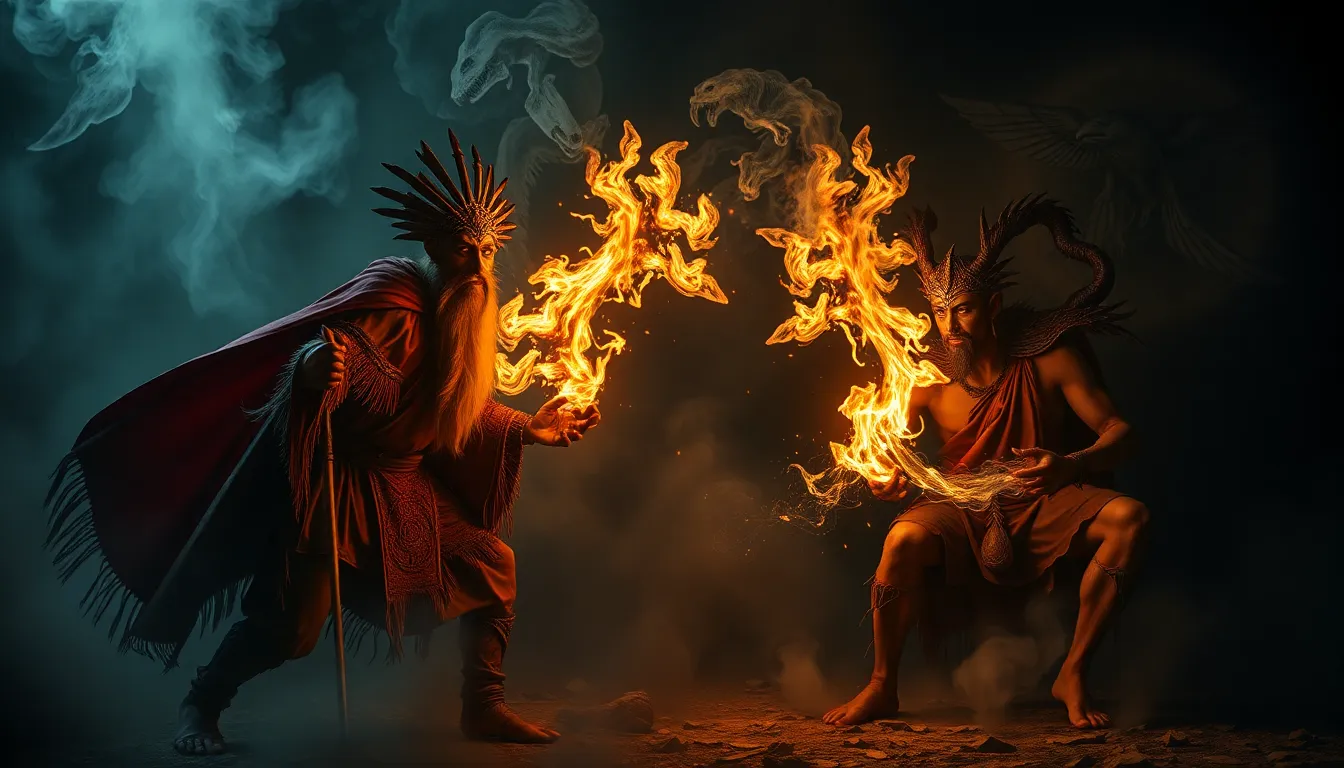The Faces of Change: Iconic Transformations in Mythology
Introduction: The Power of Transformation in Mythology
Transformation is a central theme in mythology across cultures, symbolizing change, rebirth, and the fluidity of identity. Myths often explore the concept of transformation not only as a physical change but also as a profound alteration of character, status, or destiny. This article delves into iconic transformations found in various mythological narratives, illustrating how these stories reflect human experiences and the complexity of existence.
The Role of Deities in Transformation
Many gods and goddesses in mythology embody the concept of transformation, serving as catalysts for change within their narratives. These divine figures often possess the power to alter their own forms or the forms of others, representing the dynamic forces of nature and the universe.
One prominent example is Zeus from Greek mythology, known for his numerous transformations. He frequently changed his appearance to seduce mortals, often taking the form of animals or other humans. This ability highlights the themes of power and deception, where transformation serves as a means to achieve desires and influence the course of events.
Metamorphosis in Greek Mythology
Greek mythology is rich with stories of metamorphosis, where characters undergo significant physical and emotional changes. Two notable myths are those of Daphne and Apollo and Narcissus.
- Daphne and Apollo: Daphne, a nymph, transforms into a laurel tree to escape Apollo’s advances, symbolizing the struggle between desire and autonomy.
- Narcissus: The beautiful youth falls in love with his own reflection, ultimately transforming into the Narcissus flower after his demise, representing the dangers of self-obsession.
These transformation myths explore themes of identity, desire, and the consequences of one’s actions, emphasizing the complexity of human emotions and relationships.
Transformation in Norse Mythology: From Gods to Beasts
Norse mythology features transformation prominently, particularly through the figure of Loki, a trickster god known for his shape-shifting abilities. Loki’s transformations often lead to chaos and unforeseen consequences, revealing the unpredictable nature of change.
One significant example is when Loki transforms into a mare to distract a stallion, resulting in the birth of Sleipnir, Odin’s eight-legged horse. This narrative underscores the themes of fate and prophecy, as Loki’s actions alter the course of events in the realm of gods and men.
Eastern Perspectives: Shape-shifting in Hindu and Buddhist Myths
Transformation is also a key theme in Eastern mythologies, particularly within Hinduism and Buddhism. In Hindu mythology, the concept of avatars illustrates divine transformation, with Vishnu manifesting in various forms to restore cosmic order.
- Vishnu’s ten avatars, known as the Dashaavatara, include notable incarnations like Rama and Krishna, each representing different aspects of life and dharma.
In Buddhism, transformation is symbolized through the story of the Bodhisattva, who embodies the ideal of enlightenment and compassion. The Bodhisattva’s journey reflects the spiritual transformation that individuals undergo in pursuit of enlightenment.
Celtic Myths: The Fluidity of Identity
Celtic mythology, particularly in Irish traditions, emphasizes the fluidity of identity through transformation. The story of Cú Chulainn, a legendary warrior, highlights this aspect, where he transforms through his battles and experiences, embodying both human vulnerability and heroic strength.
The Otherworld in Celtic myths serves as a realm where transformations occur, influencing characters’ identities and destinies. This mystical realm represents an alternate reality where the ordinary and extraordinary converge, allowing for profound changes.
The Alchemical Metaphor: Transformation as a Path to Enlightenment
Alchemical themes in mythology often symbolize the process of transformation as a path to enlightenment. Alchemy, the medieval precursor to chemistry, sought to transform base metals into gold, paralleling the spiritual quest for inner purity and enlightenment.
Various cultures encapsulate this idea, portraying transformation as a necessary journey towards self-realization. The alchemical metaphor serves as a powerful narrative device, illustrating the connection between physical and spiritual transformation in the quest for knowledge and understanding.
Modern Interpretations of Mythological Transformations
In contemporary literature and media, mythological transformations continue to resonate and inspire new interpretations. Modern authors and filmmakers often draw upon classic transformation myths, reimagining them for today’s audience.
- Films: Movies like “The Shape of Water” explore themes of transformation and acceptance, drawing on mythological motifs.
- Books: Novels such as “Circe” by Madeline Miller reframe the story of Circe, a figure of transformation, highlighting her agency and complexity.
- Graphic Novels: Works like “Sandman” by Neil Gaiman weave together various mythological transformations, blending old and new narratives.
These modern interpretations breathe new life into ancient myths, demonstrating their relevance in contemporary society.
The Psychological Dimensions of Transformation in Myth
The psychological dimensions of transformation in myth are significant, particularly in the context of Carl Jung’s theories on archetypes. Jung posited that myths reveal universal symbols and themes that resonate with human experiences.
Transformation in myth serves as a metaphor for personal identity and growth. The journey of characters undergoing metamorphosis reflects the challenges and triumphs individuals face in their own lives, highlighting the quest for self-discovery and fulfillment.
Conclusion: The Enduring Legacy of Transformations in Mythology
In conclusion, the theme of transformation is a powerful and enduring aspect of mythology across cultures. From ancient tales of gods and heroes to modern reinterpretations, transformations reveal the complexities of identity, desire, and the human experience. They serve as a reminder of the ever-changing nature of life and the potential for growth and renewal. As we continue to explore these narratives, we find that transformation remains a universal theme, resonating with our own journeys through the tapestry of existence.
![]()



